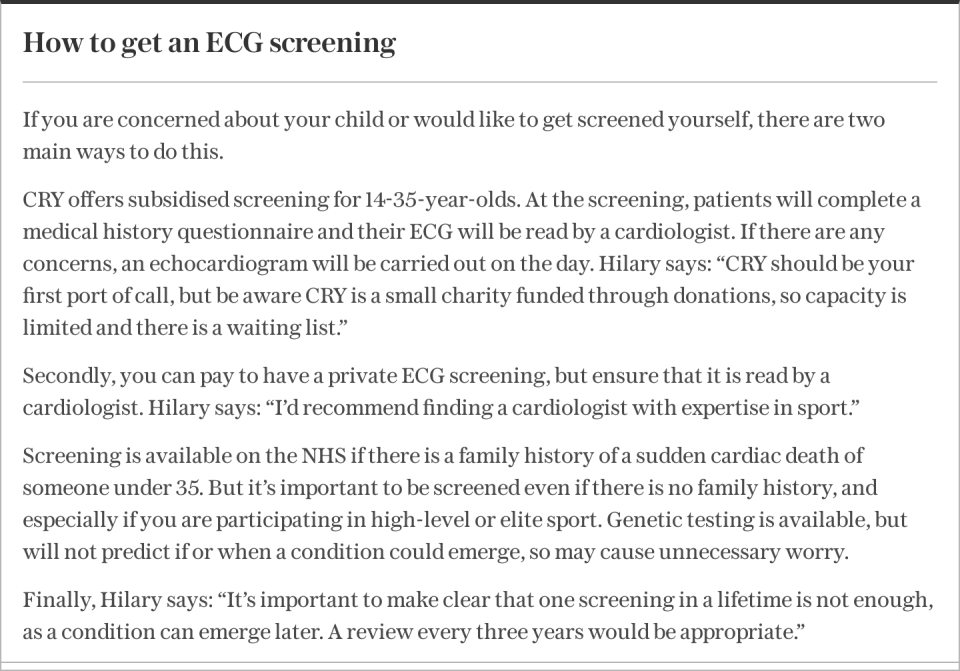I lost my daughter to a cardiac arrest – she was only 20
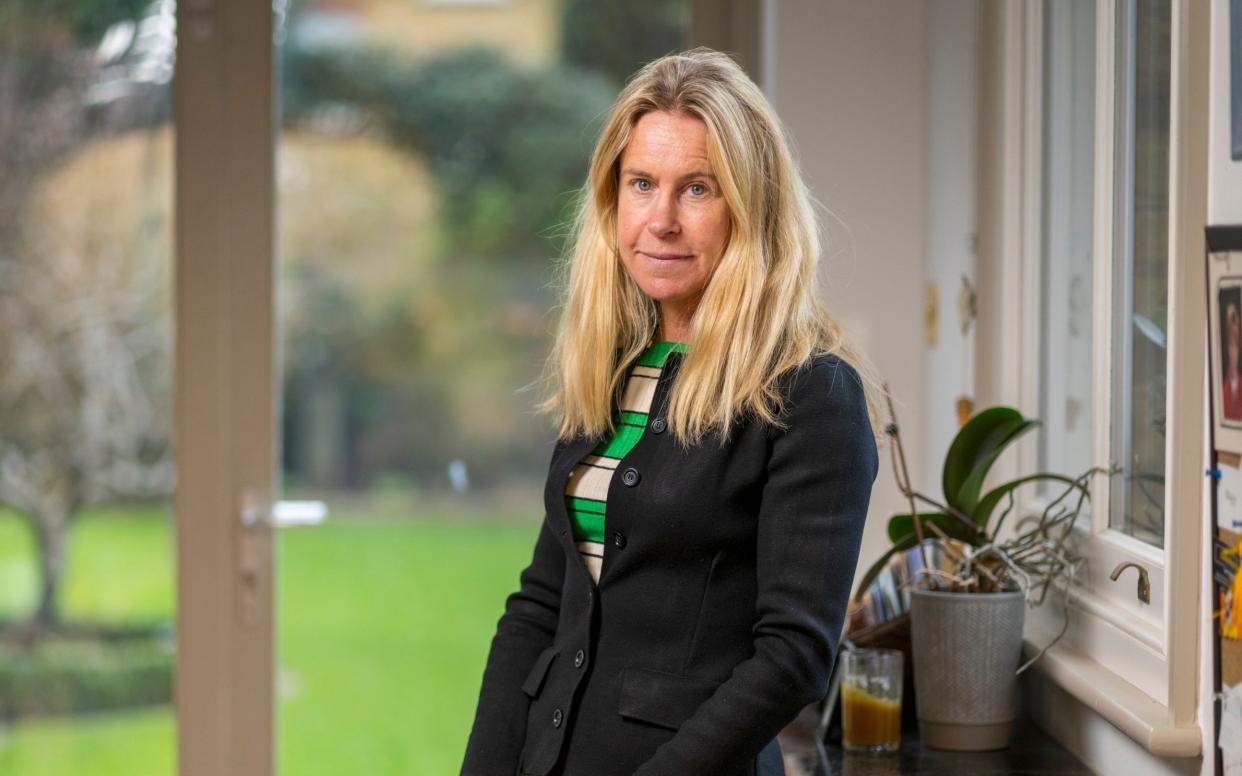
Clarissa was my miracle baby: a dot on a scan behind her twin brother Ollie, which was initially dismissed as a minor bleed. She came along for free, a surprise gift. It’s a thought I hold on to now I’ve lost her.
Nothing prepares you for the shock of a policeman knocking on your front door to tell you your daughter has died. I thought I’d done something wrong, not paid a parking ticket. Then the officers told me and my husband Simon that Clarissa had collapsed and died on a mountainside in the Gorges du Verdon, France.
Simon cried immediately, but I froze. I could hardly believe it and I still struggle to believe it now: my beautiful girl, in her prime, plucked like a flower. There was so much to look forward to. She was on her year abroad while studying modern languages at Trinity Hall, Cambridge, set for a first and a brilliant career, as well as having fun, dating boys. Everyone loved her. So many people have told me since she died that Clarissa was their best friend. She gathered everyone up around her like a lint ball and gave people joy.
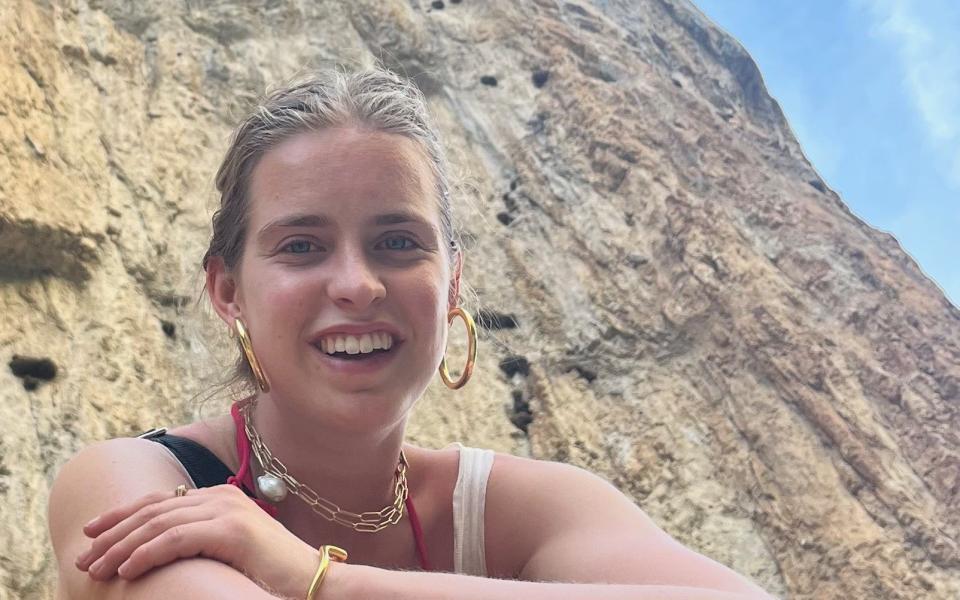
With her brothers Ollie, 21, and Hugo, 20, she was the top dog, bouncy, bossy and always in charge. She loved sunbathing, always asking for bikinis for Christmas, and at her memorial, her friends wore yellow ribbons in their hair. I felt she got her energy from the sun.
As a child, Clarissa excelled at sport. She was a keen runner and hockey player, and competed for Cambridge. But her love of sport was slowly killing her. Clarissa had an undiagnosed heart condition – like many athletes, including footballers Christian Eriksen, Tom Lockyer and Fabrice Muamba. While any young person like her is at risk from a cardiac arrest, exercise exacerbates that risk. It’s like training when you’ve pulled a muscle – the more you train, the weaker the muscle gets.
On the day of her death, Clarissa had taken time off work from her publishing job at a company called Flammarion in Paris. It was Coronation weekend in the UK and a long weekend in France also, and she and her flatmate were hiking around Castellane, near Nice.
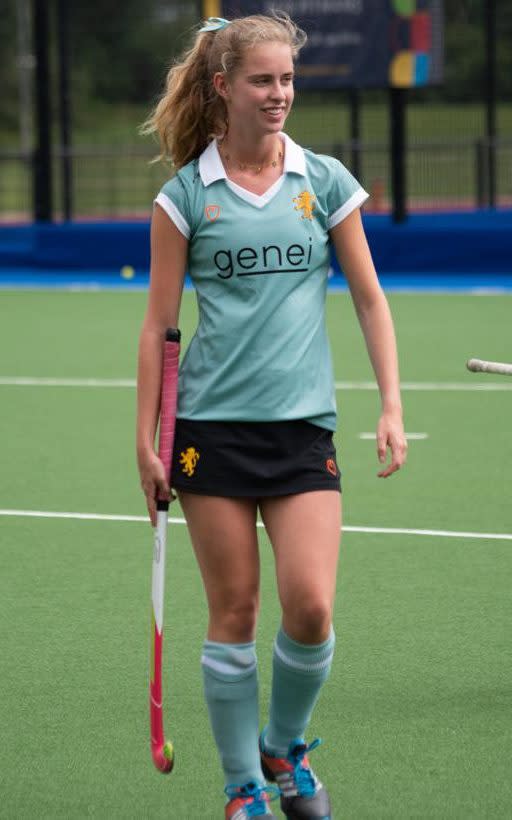
They followed a remote route up past a lake, where Clarissa had what was to be her final swim – prophetically, the river is called the Styx du Verdon, like the river in Greek mythology that separates the world of the living from that of the dead. They had a picnic then continued up what was little more than a goat track for around two and a half hours and were not far from the summit when her flatmate, who was behind, suddenly heard Clarissa shout out, “Oh no!”.
She fell back into her flatmate’s arms, and then tried to scrabble to her feet. Her flatmate put her in the recovery position, frantically screaming for help. A group of four women heard her cries. One, an American woman, was a trained wilderness first responder and gave Clarissa CPR for half an hour, and another called the emergency services, who sent a helicopter with a medic who tried to shock her into life.
But she was gone. There had not been a flicker of life even during CPR. It was as simple as that, one minute she was there and the next minute she wasn’t. In August, we returned to the spot where she was winched up afterwards. To me, that felt like that was the beginning of her journey to heaven.
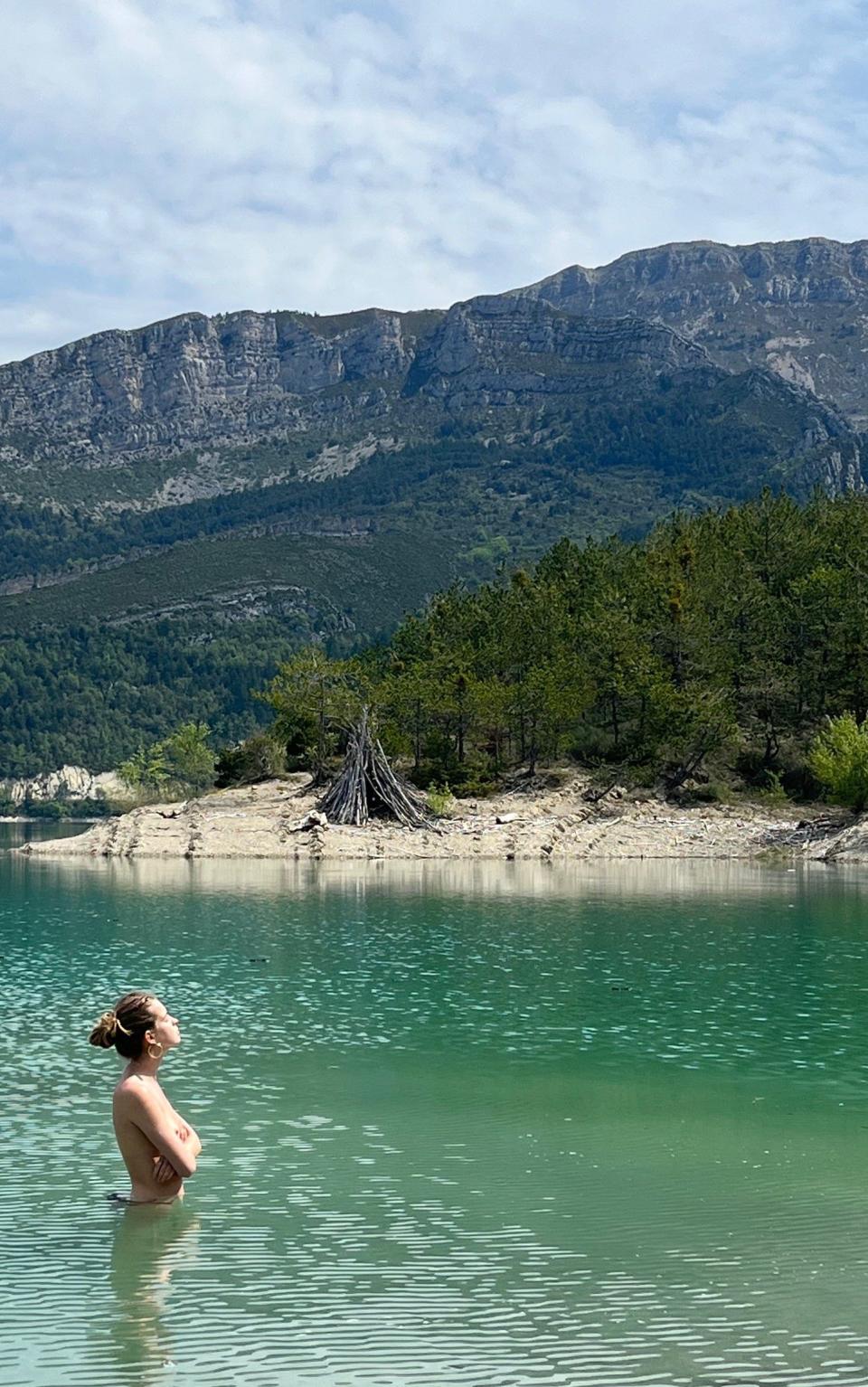
The police told us that under French law we had 48 hours to get to France before they closed the casket and we would not be able to see Clarissa again. So in the middle of our shock and grief, we had to get to our boys immediately.
Clarissa’s twin Ollie was in Oxford, two weeks away from his history finals. Simon was blue-lighted there and told him at around 11.30pm. Like me, he struggled to process the news and was completely shell-shocked, but was comforted by being with Simon.
I called Hugo, who’s studying at Trinity College, Dublin. I made sure he was surrounded by friends as I told him via a video call. He collapsed to the ground. It was the worst thing I’ve ever had to do.
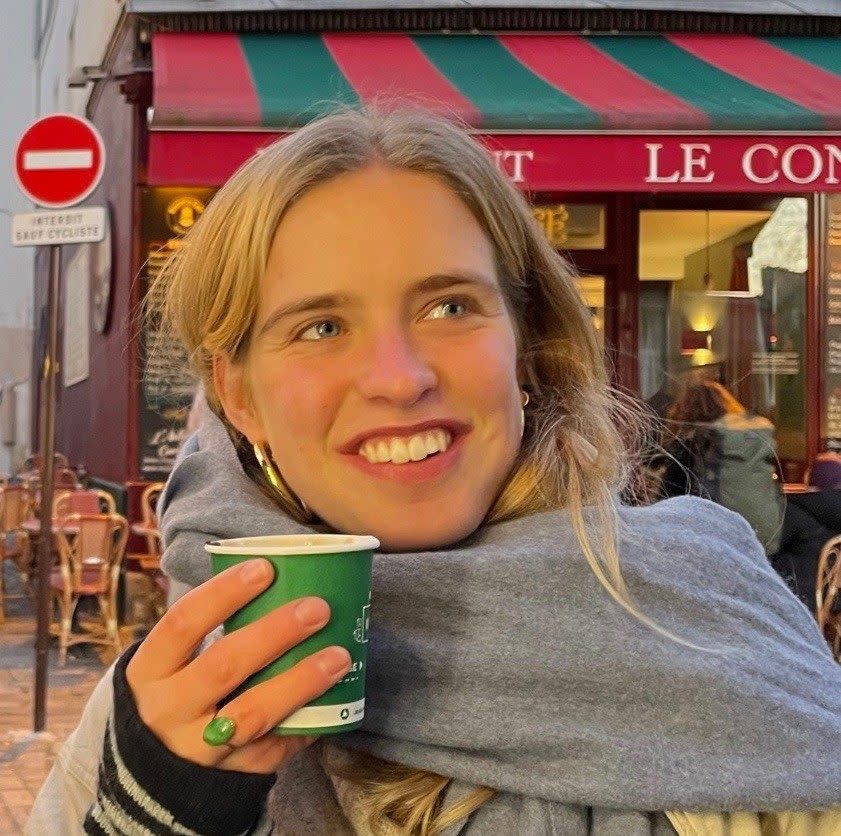
Initially, Hugo was reluctant to come to France but I knew how important it was for us to see Clarissa together. Otherwise, we would never have been able to understand what had happened or even begin grieving.
The journey to France was horrendous, but I remember the kindness of a woman who handed me her hanky as I sobbed. At 7.30pm on Monday May 8 we went to say goodbye to Clarissa in the hospital. Irrationally, I expected her to have some mark on her, some sign of death. But she looked like a sleeping princess, so peaceful and beautiful. That’s what I find so hard, because she was a force of nature and so present in our lives.
A week later, on her 21st birthday, Clarissa was flown back to the UK, and we began the process of finding out why she had died, and organising her funeral, which took place on June 27 at the same church in Mayfair where Simon and I married.
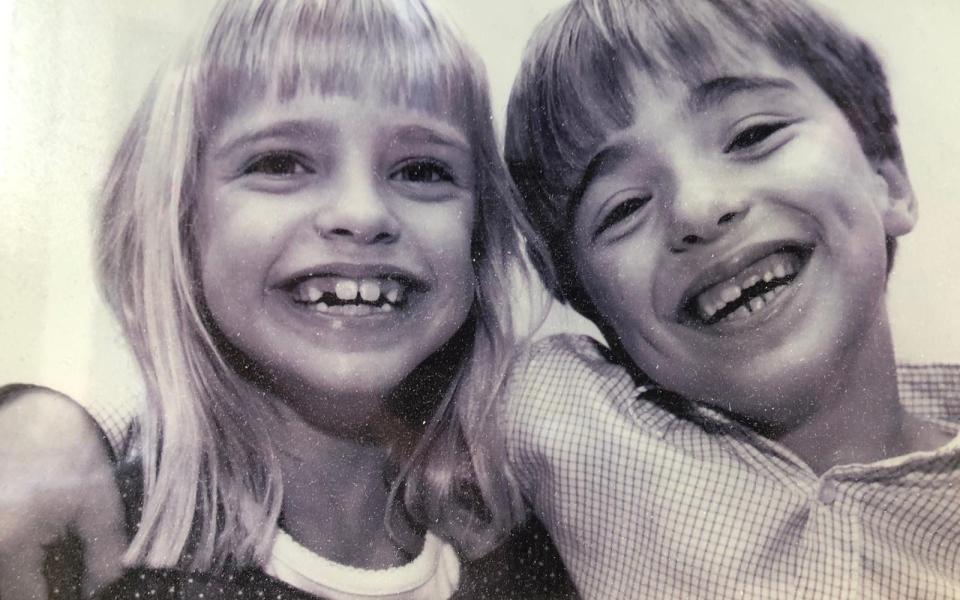
Our worst fears were confirmed when we were told she’d had an underlying heart condition called arrhythmogenic cardiomyopathy, a disease of the heart muscle, which caused her cardiac arrest. Most young people who die from sudden cardiac deaths have no warning – 80 per cent have no symptoms. They may collapse during exercise or simply during their sleep. But Clarissa had had a warning sign, which makes what happened harder for us to bear.
A year before, she’d fainted during a game of Spikeball in Cambridge. She was unconscious for 10 minutes but tests, including an ECG, were normal. When we got a specialist to review that ECG after her death, he confirmed her condition could have been picked up by a cardiologist or someone trained to spot the signs.
We had followed up, but with a neurologist, and her brain MRI was clear. If her heart condition had been diagnosed, she would have been able to do no more than essential exercise, and most likely would have had a defibrillator fitted to shock her heart.
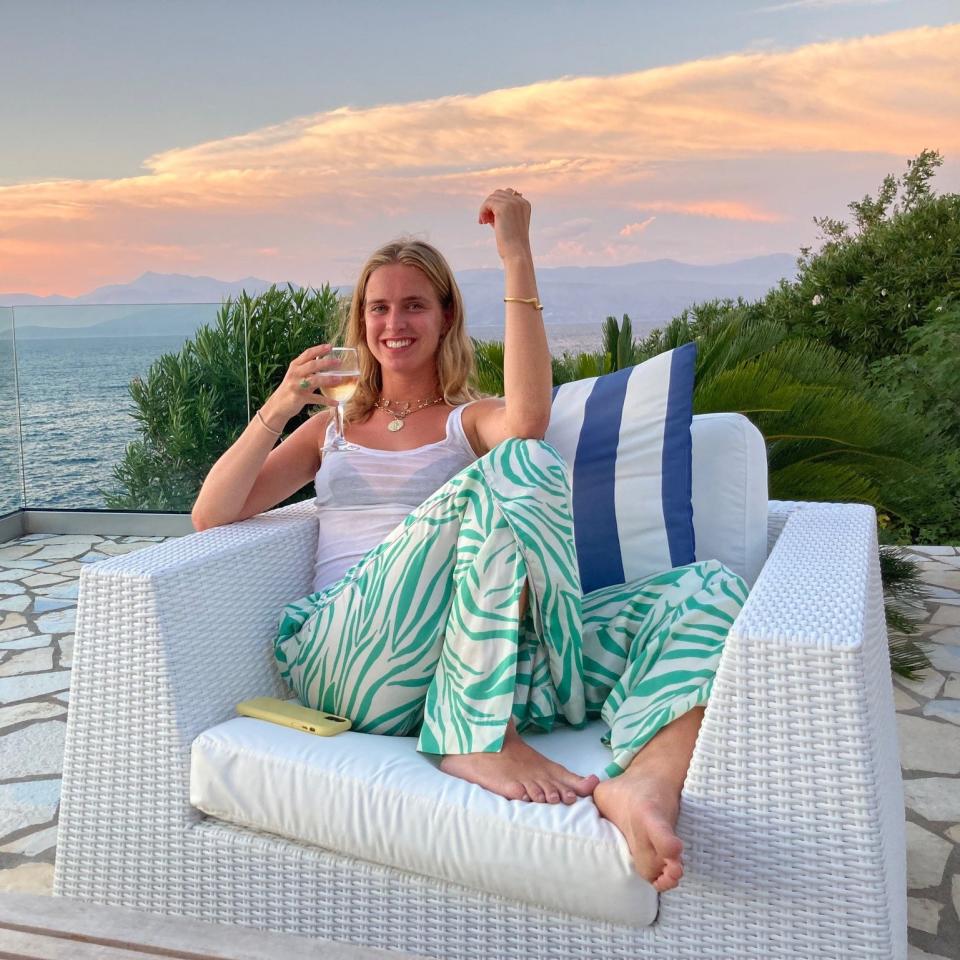
The hospital has now changed its protocols and that is enough for me. I don’t feel any anger. But her death has given me another purpose: to do all I can to reduce the numbers of young people dying each year. An entire secondary school full of young lives are snuffed out too early.
I’ve been working with the charity Cardiac Risk in the Young to achieve three things. I want more medical professionals to be trained to spot the warning signs on the ECGs of apparently healthy young people; I want more capacity for screening across the country; and I want universities and sports clubs to focus on screening as an integral part of safeguarding protocols. It costs £65 – less than a pair of football boots – for an ECG to be read by a cardiologist.
It is too late for Clarissa and that breaks my heart. But as a family, we are all determined in our own way that her death will make a difference. It’s how I keep going.
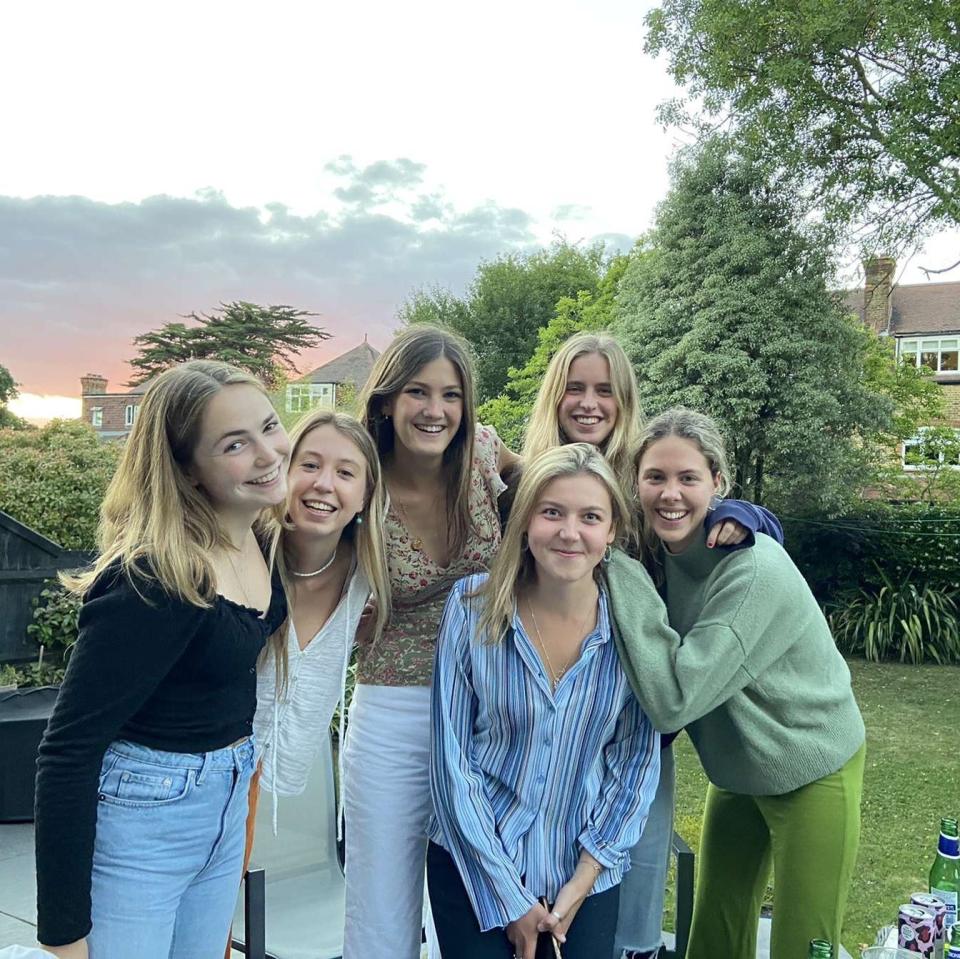
We planted a magnolia tree outside her room in Trinity Hall and will plant an oak tree at her school, St Mary’s Ascot, this year, and we know from her funeral and memorials how much she is missed and how much she was loved. That’s the most tragic thing about a young person dying from a cardiac arrest – it affects hundreds of people by association.
The best thing we can do in her memory is bring about real change, and for us that means all young people aged 14-35 to have access to screening.
For more information, see the CRY website - c-r-y.org.uk - and Clarissa’s memorial page: c-r-y.org.uk/clarissa-nicholls
